10 Things to Know Before Buying Your First Watch
Share

10 Things to Know Before Buying Your First Watch
Down-to-earth advice for first-time watch buyers — practical questions, real insight, and tips that actually help you pick the right watch.
Why asking the right questions matters
Buying your first watch is part practical decision, part personal expression. The internet makes it easy to get overwhelmed by brands, specs, and hype. This guide gives you the top 10 questions to ask before you buy, each one helps you cut through marketing and pick a watch you’ll actually wear and enjoy.
Quick checklist (so you can skim)
- What’s my budget?
- Quartz or mechanical?
- Does it fit my lifestyle?
- What case size suits my wrist?
- Which brands offer the most value?
- New or pre-owned?
- How much maintenance will it need?
- Which strap works best for me?
- Will I actually wear it?
- Why do I want a watch?
1 — What’s my budget?
Be honest with yourself. Watches range from <$50 to many thousands of dollars. Setting a budget narrows your options and prevents buyer’s remorse. If you want a mix of value and longevity, many great beginner watches live in the $100–$700 range.
Search keywords: budget first watch, affordable watches for beginners, best watch under 500
2 — Do I want quartz or mechanical?
Quartz: battery-powered, accurate, low maintenance. Mechanical (manual or automatic): crafted movements, more maintenance, and a different emotional appeal. Ask: Do I want convenience or connection to watchmaking?
Quick insight: If you don’t want to service a watch, quartz (or inexpensive automatics with good service intervals) is a safer start.
3 — What’s my lifestyle?
This determines water resistance, durability, and style. If you swim, work outdoors, or sweat a lot — prioritize water resistance and durable materials. If you work in an office, a slim dress watch may be better.
- Active/outdoor: dive or field watch, solid water resistance
- Office/formal: slim dress watch, leather strap
- Everyday casual: versatile steel bracelet or simple leather
4 — What case size fits me?
Case diameter affects how the watch looks on your wrist. Measure your wrist and try watches on if possible. General guidance:
- Small wrists: ~36–40mm
- Average wrists: ~38–42mm
- Large wrists: ~42–46mm+
Pro tip: Also check lug-to-lug length — a wide case can wear larger than the advertised diameter.
5 — Which brands give the most value?
Brand matters for resale and prestige, but brands like Seiko, Citizen, Tissot, Hamilton, and Orient offer fantastic value for beginners. Decide whether prestige or value matters more to you.
Question to ask a dealer: Does this model have a good service network and parts availability?
6 — New or pre-owned?
New watches come with warranties and factory packaging. Pre-owned often gives you higher-tier watches for less money. If you buy pre-owned, use trusted marketplaces and ask for service history and photos of the actual watch being sold.
Checklist for used watches: seller reputation, return policy, clear photos, service records.
7 — What maintenance should I expect?
Quartz: battery every few years. Mechanical: service every 3–7 years depending on use and brand — servicing can cost hundreds. Ask: What are typical service costs and intervals for this model?
Reality check: Owning a mechanical watch is a relationship; plan for occasional servicing.
8 — Which strap should I start with?
Straps change a watch’s look instantly. Leather = dressy, steel = versatile, rubber = sporty, NATO = casual. If this is your first watch, start with something versatile (steel bracelet or neutral leather) and buy an extra NATO or rubber strap to experiment.
9 — Will I actually wear this?
Too many buyers chase hype and end up with a drawer full of unused watches. Ask yourself: Will this fit my wardrobe and daily routine? If the answer is no, pick something simpler and more wearable.
10 — Why do I want a watch?
Is it for utility, style, investment, or passion? Your reason will guide every other choice. If you want a daily tool, prioritize durability and legibility. If it’s a milestone or heirloom, brand and movement matter more.
Personal prompt: Write down one sentence: “I want a watch because…” Use that to filter options.
Common questions first-time buyers ask
- How much should I spend on my first watch?
- There’s no single answer, but a sensible range for a first good-quality watch is $150–$700. Under $150 you’ll find reliable quartz and entry automatics; $700+ opens into premium entry-level mechanicals.
- Is automatic better than quartz?
- Not “better” — just different. Automatics have craftsmanship and character; quartz wins on accuracy and low maintenance.
- How do I know if a watch is water resistant enough?
- Check the ATM or meters: 30m/3ATM is splash resistant, 100m+ is safe for swimming, and 200m+ is typical for serious dive watches.
How to shop smart — quick action steps
- Set a clear budget and stick to it.
- Decide quartz vs mechanical based on how much maintenance you want.
- Try watches on in person if possible — pictures lie.
- Check brand reputation, service network, and warranty.
- If buying used, verify seller and get a return policy.
Final thoughts
Your first watch should fit your life, not someone else’s ideal. Ask the questions above, think about why you want a watch, and choose something you’ll enjoy wearing. Watches are small, daily pieces of joy — picked the right way, your first watch will be one you actually love to put on.
Want help narrowing choices? Connect with me on VELOCE - The Watch App. Share your budget, style (casual, dress, sporty), and wrist size, I’ll suggest three great first-watch options that match.


